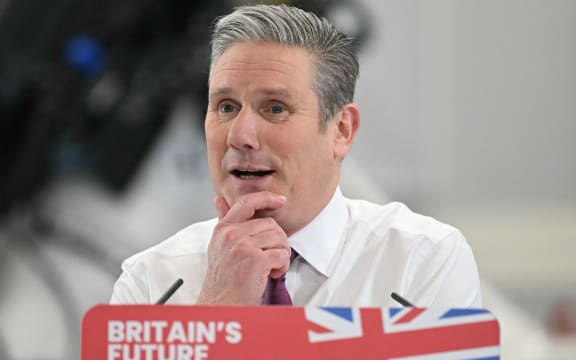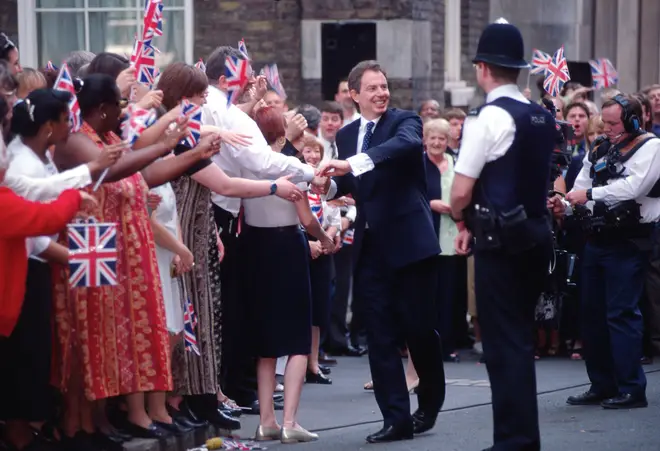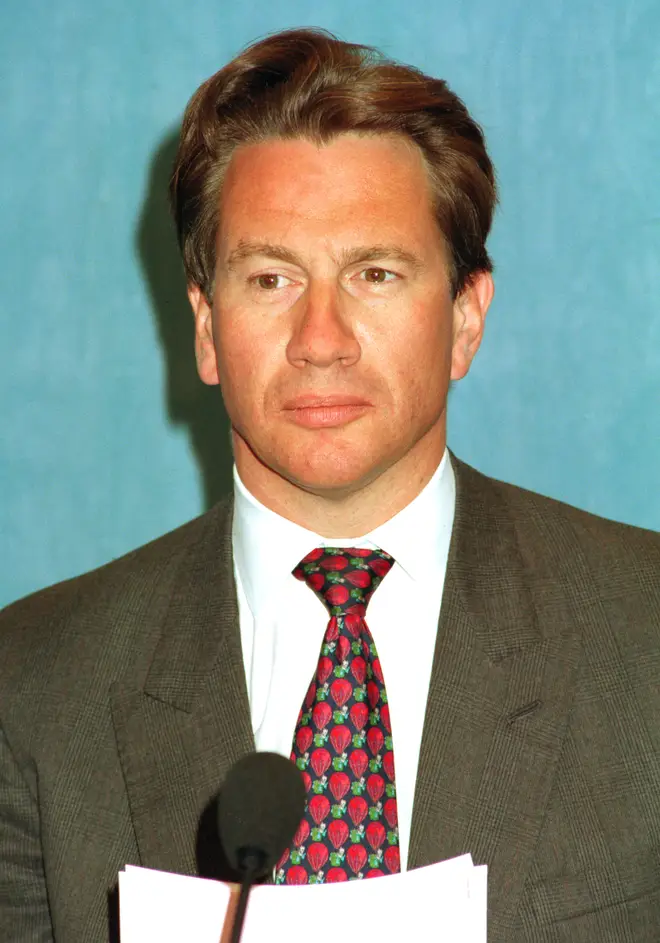Survey predicts wipeout of Rishi Sunak's party from power in UK
A recent survey predicts a significant electoral defeat for the Rishi Sunak-led Conservative Party in the upcoming British general election

In Short
- Survey predicts Rishi Sunak's Conservative Party wipeout in UK elections
- Labour Party forecast to win 403 seats, Tories to crash to 155
- Elections expected in second half of the year
A major survey of over 18,000 people on Wednesday predicted a wipeout for British Prime Minister Rishi Sunak-led governing Conservative Party, with the Opposition Labour Party forecast to win 403 seats – comfortably clear of the 326 required for a majority.
The new multi-level modelling and post-stratification (MRP) figures released by YouGov follow a similar mega poll over the weekend predicting a defeat for the Tories, with a gain of 201 for Keir Starmer-led Labour and Sunak-led Tories set to crash to just 155 seats – a loss of 210.
The findings indicate a worse defeat for the Tories than under former Tory prime minister John Major in 1997 when the Tony Blair-led Labour left them with just 165 MPs.
“These latest results push Keir Starmer closer toward repeating a Blair-level result for Labour, a full 27 years since Labour’s longest-serving prime minister first took office. In that election, Blair won 418 out of the available 659 House of Commons seats,” reads the YouGov analysis.
“By contrast, Rishi Sunak is now heading for a worse result than John Major’s 1997 total of 165 seats. The coming tidal wave projected by this model would sweep away several major Conservative figures,” it said.
The most prominent members of Parliament who could lose their House of Commons seat include Chancellor Jeremy Hunt, science minister Michelle Donelan and levelling up minister Michael Gove. Other senior Tories in the precarious zone with the electorate include Commons leader Penny Mordaunt and former minister Jacob Rees-Mogg.
The Liberal Democrats are up by one seat based on an earlier YouGov model, to 49, on the path to a “significant parliamentary comeback” without any significant changes to their national vote share. In Scotland, YouGov now projects Labour to comfortably be the largest party.
The headline results based on this MRP model would be Labour at 41 per cent of the vote, the Conservatives at 24 per cent, the Liberal Democrats at 12 per cent, the Greens at 7 per cent, far-right Reform UK at 12 per cent, and others at 1 per cent.
YouGov said it interviewed 18,761 British adults from March 7-27, marking the latest survey to predict a 1997-style outcome for the Conservatives when the nation goes to the polls, which Sunak has indicated will be held in the second half of the year.
“Constituency-level projections were estimated using the same statistical method which correctly predicted the 2017 and 2019 UK general elections – multi-level modelling and post-stratification (MRP),” it said.
The repeal of the Fixed-term Parliaments Act in 2022 restored the ability of British prime ministers to set election dates. However, by law a general election has to take place at least every five years, making January 2025 the outermost deadline for Sunak to go to the ballot box.
YouGov MRP poll: Full list of 203 Labour
gains if general election held tomorrow
Tom Belger
3rd April, 2024,
The pollster YouGov has released a new MRP survey projecting Labour would win a Tony Blair-style landslide of more than 400 seats nationwide if a general election were held tomorrow.
The poll of more than 18,000 voters last month, using well-regarded multi-level regression and post-stratification (MRP) techniques, has been mapped out to predict constituency-level results if there were an immediate election.
More than 200 Labour gains are expected compared to the 2019 general election results (so not factoring in the by-elections since), including 176 from the Conservatives and 27 from the Scottish National Party – with a full list, sorted by region, published below. You can also see LabourList‘s tracker of Labour parliamentary candidates selected so far here.
Some 25 Labour gains are projected in the West Midlands, the highest of any region, followed by 24 in the North West, 23 in the South East, 22 in the East Midlands and 21 in the East of England.
The projected 154-seat majority, with 403 seats nationally, would leave Labour leader Keir Starmer close to Labour’s first election victory under Tony Blair’s leadership, the 418 seats won in 1997.
YouGov reports: “The most prominent casualty could be chancellor Jeremy Hunt, who is currently fractionally behind the Lib Dems in his Godalming and Ash seat. Science secretary Michelle Donelan is also currently trailing the Lib Dems in her Melksham and Devizes seat, and Michael Gove is just one point ahead in his Surrey Heath seat.”
It says that in Scotland Labour would “comfortably” be the largest party in terms of seats won north of the border, with 28 seats to the SNP’s 19 and five each for the Lib Dems and Tories.
Scottish Labour deputy leader Jackie Baillie said: “Labour is taking nothing for granted and we will continue working tirelessly to earn voters’ trust. Change is possible and Labour is ready to deliver it, with our plan to make work pay, cut bills, renew public services and strengthen our economy.”
Reform UK’s vote share is expected to be highest in Barnsley North and Hartlepool, but they sit around 20 percentage points behind Labour as projected winners. They are also expected to do well in predicted Labour wins Doncaster North, Barnsley South, Pontefract, Castleford and Knottingley, Normanton and Hemsworth, Ashfield, Rawmarsh and Conisbrough.
YouGov suggest the Greens would hold in Brighton Pavillion, but narrowly fall short of taking Bristol Central from Labour shadow cabinet minister Thangam Debbonaire.
Conservatives set for heavy UK election defeat to opposition Labour, survey shows

Rishi Sunak. Photo: IAN FORSYTH
British Prime Minister Rishi Sunak's Conservative Party is set for a heavy defeat at a national election expected this year, according to a seat projection which showed the opposition Labour Party winning more than 400 seats.
The YouGov model, which predicts results in individual Parliamentary seats based on estimated vote share, projected that Sunak's Conservatives would win just 155 seats and Labour would win 403 seats. Britain's Parliament has 650 seats.
Polls have consistently given Labour a double-digit lead over the Conservatives, ahead of an election which Sunak has said he expects to call in the second half of the year.
The Conservatives have been in government, either in coalition or on their own, since 2010, but have had five different prime ministers in that time, as Britain's vote to leave the European Union and scandal over the handling of the Covid crisis led to continued political turmoil.
The poll indicated Sunak is still struggling to gain momentum after a tax-cutting budget last month and ahead of local elections in May. The model showed the Conservatives doing slightly worse - and Labour doing better - than when YouGov last published such a projection in January.

Labour party leader Sir Keir Starmer. Photo: AFP
YouGov now projects that the Conservatives would score fewer seats than they did in 1997, when they won just 165 seats in a landslide defeat to a Labour Party led by Tony Blair.
Among the prominent Conservative lawmakers who could lose their seats were finance minister Jeremy Hunt and former leadership candidate Penny Mordaunt, YouGov said.
The model projected Labour would fall short of the 418 seats won under Blair, with the projected 154 seat majority also less than the 179 majority it won in 1997.
YouGov interviewed 18,761 British adults interviewed from 7-27 March for the survey. The number is many times larger than regular opinion polling and YouGov said the method correctly predicted the previous two elections.
It said the headline election result based on the model would see Labour on 41 percent of the vote and Conservatives on 24 percent, though cautioned that the results could look different to regular polling due to its treatment of those that do not currently have a voting intention.
- This story was first published by Reuters
Rishi Sunak. Photo: IAN FORSYTH
British Prime Minister Rishi Sunak's Conservative Party is set for a heavy defeat at a national election expected this year, according to a seat projection which showed the opposition Labour Party winning more than 400 seats.
The YouGov model, which predicts results in individual Parliamentary seats based on estimated vote share, projected that Sunak's Conservatives would win just 155 seats and Labour would win 403 seats. Britain's Parliament has 650 seats.
Polls have consistently given Labour a double-digit lead over the Conservatives, ahead of an election which Sunak has said he expects to call in the second half of the year.
The Conservatives have been in government, either in coalition or on their own, since 2010, but have had five different prime ministers in that time, as Britain's vote to leave the European Union and scandal over the handling of the Covid crisis led to continued political turmoil.
The poll indicated Sunak is still struggling to gain momentum after a tax-cutting budget last month and ahead of local elections in May. The model showed the Conservatives doing slightly worse - and Labour doing better - than when YouGov last published such a projection in January.

Labour party leader Sir Keir Starmer. Photo: AFP
YouGov now projects that the Conservatives would score fewer seats than they did in 1997, when they won just 165 seats in a landslide defeat to a Labour Party led by Tony Blair.
Among the prominent Conservative lawmakers who could lose their seats were finance minister Jeremy Hunt and former leadership candidate Penny Mordaunt, YouGov said.
The model projected Labour would fall short of the 418 seats won under Blair, with the projected 154 seat majority also less than the 179 majority it won in 1997.
YouGov interviewed 18,761 British adults interviewed from 7-27 March for the survey. The number is many times larger than regular opinion polling and YouGov said the method correctly predicted the previous two elections.
It said the headline election result based on the model would see Labour on 41 percent of the vote and Conservatives on 24 percent, though cautioned that the results could look different to regular polling due to its treatment of those that do not currently have a voting intention.
- This story was first published by Reuters
Conservatives face worse election defeat than John Major's 1997 loss with Labour primed for over 400 seats, poll says
3 April 2024,

The Conservatives are facing a worse election defeat than in 1997 at the next general election, as Labour prepare for a landslide victory that could give them more than 400 seats, the latest election poll has revealed
YouGov's latest seat-by-seat poll will cause further headaches for Rishi Sunak, predicting even worse elections than an equivalent poll in January earlier this year.
Sir Keir Starmer's Labour will be handed a majority of 154 after winning 403 seats in the House of Commons, according to the poll.
The Conservatives, meanwhile, will have just 155 seats - losing 210 seats from the last general election in 2019 - according to the prediction which uses multi-level regression and poststratification (MRP) method of polling

Read More:
Read More:
Several prominent Tory MPs are also predicted to have their own 'Portillo Moment' and could lose their seat.
Chancellor Jeremy Hunt, Leader of the House of Commons Penny Mordaunt, former Conservative leader Sir Iain Duncan Smith, and leading Brexiteer Sir Jacob Rees-Mogg would be on course to lose their seats.
According to the pollsters, Rishi Sunak is heading for a worse result than John Major's 1997 defeat, when the then-Tory leader won a total of 165 seats.
The poll for Starmer, however, could put him on course to win a victory on par with that of Tony Blair in his first term of office. In 1997. The party's longest-serving prime minister won 418 of the available 659 Commons seats.
Other big Tory figures at risk of losing their seats include Cabinet members Michelle Donelan, the Science Secretary, and Welsh Secretary David TC Davies.
The model is based on vote intention data collected and analysed by YouGov from 18,761 British adults interviewed from March 7-27.
The Green Party would continue to hold Brighton Pavilion according to the polling, the seat currently held by Caroline Lucas - who is standing down at the election.
The party is also a close second to Labour in the newly created Bristol Central seat.

Read More:
Read More:
The Reform Party, led by Richard Tice, was found to have a growing share of the voting intention by YouGov. It is not predicted to win any seats, however. While it places second in 36 constituencies, it is not close to winning them.
The Lib Dems are meanwhile on course to grow their parliamentary comeback, with a projected win of 49 seats.
North of the border, YouGov estimates that Labour will be the largest party in Scotland. They are projected to win 28 Scottish seats, followed by the SNP with 19.
The Lib Dems and Conservatives would win five each under the modelling.
In Wales, Plaid Cymru is expected to win a total of four seats, including the proposed Caerfyrddin constituency.
Poll predicts Labour could become Scotland’s largest party
3 April 2024,

As Scotland’s embattled First Minister continues to face backlash over his Hate Crime Act, his party has been hit with yet more bad news. New polling from YouGov suggests that Sir Keir Starmer’s Labour party will become the largest party in Scotland, taking 28 seats and pushing the SNP into second place. The Nats are predicted to lose almost 25 of their Westminster seats, retaining just 19, the next time the electorate head to the ballot box.
The MRP poll suggests that Labour will sweep up across Scotland’s central belt – widely regarded within the Scottish party as being ‘the first red wall to fall’ – and is even predicted to take some Glasgow constituencies. Na h-Eileanan an Iar is also predicted to elect its Labour candidate, former Daily Record journalist Torcuil Crichton, following the expulsion of the constituency’s current MP Angus MacNeil from the SNP last year.
But it’s not just the Nats that will find the new survey hard to stomach. Scottish Tory leader Douglas Ross told The Spectator in October that he thought his party ‘could have a really good general election’. Well, he might have to think again. Instead of making gains, the poll predicts that the Conservatives will lose two of their seven seats north of the border. Scotland has previously been thought to be the one part of the UK in which the Tories could make gains at the next election, but this new poll suggests Prime Minister Rishi Sunak will face a worse defeat than John Major in 1997. More than that, 11 cabinet ministers are at risk of losing their seats, with Chancellor Jeremy Hunt, Leader of the House Penny Mordaunt and Science Secretary Michelle Donelan among them.
The long and short of it? While the Tories fear electoral wipeout, the SNP’s fortunes aren’t looking particularly promising either. The First Minister told his party conference in October that independence preparations would begin again if they won a ‘majority’ – 29 – of Scotland’s Westminster seats. If the Nats only hold on to 19 after the country goes to the polls, not only will they have lost over half of their Westminster MPs, they’ll have lost anything resembling an independence mandate too.

WRITTEN BY
Steerpike is The Spectator's gossip columnist, serving up the latest tittle tattle from Westminster and beyond. Email tips to steerpike@spectator.co.uk or message @MrSteerpikeComments
Vaughan Gething accused of being ‘Starmer’s man in Wales’

Martin Shipton
Welsh Labour critics of Vaughan Gething believe his failure to hold a Cabinet meeting in the two weeks since he was elected First Minister is an early indication that he is Keir Starmer’s man in Wales rather than a “Father of the Nation”, like his predecessors.
Mr Gething became First Minister on March 20 after winning a narrow victory over his rival Jeremy Miles following a fraught campaign in which he was strongly criticised for accepting donations totalling £200k from the company of a businessman who had received two suspended jail sentences for polluting the protected landscape of the Gwent Levels.
It also emerged that Mr Gething had lobbied the regulator Natural Resources Wales to go easy on the group concerned, and that it had submitted an application for a giant solar plant whose fate will be decided by the Welsh Government.
Dismay
Now some Welsh Labour insiders have been expressing dismay over Mr Gething’s priorities since he took over from Mark Drakeford.
A senior party source told us: “There’s been not exactly surprise, but quite a bit of eye-rolling over the fact that Vaughan hasn’t held a Cabinet meeting since his election on March 20.
“It’s the normal thing in any new government, or following a reshuffle, that the new head of government holds a Cabinet meeting at which he or she sets out their priorities and gives some indication as to the priorities the Cabinet Secretaries should focus on. That hasn’t happened at all.
“Instead, immediately after taking charge, Vaughan went to London where he was greeted by Keir Starmer and invited to a Shadow Cabinet meeting in Westminster.
“Mark Drakeford never attended a Shadow Cabinet meeting in Westminster. Colleagues say he’s told them he then went for a break to Spain over Easter.
“It seems clear that in the run-up to the general election, Vaughan will be used as part of UK Labour’s senior team during the campaign. On one level that’s fine, but on another it confirms that he’s more interested in being a party figure than a national leader.
“For him, unlike his three predecessors – Mark Drakeford, Carwyn Jones and Rhodri Morgan – it’s more important to be the leader of Welsh Labour than the First Minister.
“To various degrees, Mark, Carwyn and Rhodri behaved as “Fathers of the Nation” – that’s not something Vaughan is interested in. As some expected, he’s becoming Keir Starmer’s man in Wales. Taking it further, one could say that he’s the First Minister Alun Michael would have become if he’s had the opportunity to do so.”
Tainted
Mr Michael defeated Rhodri Morgan for the Welsh Labour leadership in the run-up to the first devolved election in 1999. His victory was tainted with allegations of a stitch-up. While Mr Morgan won majority support among party members, Mr Michael benefitted from trade union block votes awarded to him by small groups of union leaders, as well as support from MPs.
In the election, Labour did worse than expected, winning only 28 of the 60 seats in the then National Assembly. Nine months after being elected as First Secretary – as the leader of the Assembly was initially known – Mr Michael, who was seen by many as Tony Blair’s man in Wales rather than as a genuine national leader, was ousted by opposition politicians because of his failure to secure extra funding from the UK Government to match the European aid money granted to Wales because of its relative poverty.
Rhodri Morgan then took over as First Minister.
‘Fed up’
The senior Labour source told us: “Clearly Vaughan has decided to operate in a very different way from his predecessors. People are not impressed, and in fact fed up. I have spoken to one Minister who wasn’t at all impressed by the failure to hold a Cabinet meeting, and about Vaughan’s apparent sense of priorities.
“It’s clear that there is not a great deal of goodwill towards Vaughan in the Labour Senedd group, most of whom supported Jeremy Miles.
“Among those Ministers who supported Jeremy, there’s not much of an incentive to be loyal, because it’s been suggested that in a year or so he intends to have a reshuffle in which some of them would be expected to make way for MSs like Hefin David, Vikki Howells and Jack Sargeant who supported Vaughan and were disappointed not to get Ministerial roles.”
A Welsh Government spokesman said: “The FM was sworn in on March 20t and then appointed his Cabinet on Thursday evening.
“He had meetings with colleagues on Friday and then a number of engagements over Easter week, during the recess, including further meetings with Cabinet colleagues and external organisations etc up until Thursday.
“I am assuming he would have had a few days off over the Easter weekend.”
No comments:
Post a Comment